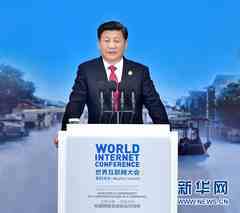China and the United Kingdom impose respective media bans
Kanako Mita and Lee Jay Walker
Modern Tokyo Times

In a perfect world, media organizations would be based solely on journalism and providing independent news. However, the agenda of the day be it overtly controlled politically like in China – or based on politically correct modes of thought to right-wing media groups – all meet the respective bias that exists to various degrees.
Of course, some nations control the media more than others. Hence, the media in one-party states, theocratic nations, or under the rule of the same leader for decades will all witness enormous constraints. Therefore, while the media is freer based on commercial angles in the United Kingdom rather than China, it is equally foolhardy to expect objectivity in the United Kingdom even if the bar is higher than in Communist-led China.
In other words, if you are anti-immigration and support the traditional view of the family at the expense of gender-based politics, it is futile to work for liberal establishments including the BBC. It is no different in America, thus following CNN or Fox News highlights respective political bias in both directions.
China thus banned the BBC World News based on the grounds of an earlier ban in the United Kingdom on a Chinese network. The Chinese Communist Party also believes that the coverage of Xinjiang is based on geopolitical propaganda.
After all, the BBC doesn’t highlight the persecution of the mainly indigenous Buddhists in the Chittagong Hill Tracts – or the persecution of Christians and religious minorities including the Ahmadiyya in Pakistan – to the same degree? Despite Bangladesh and Pakistan belonging to the Commonwealth just like the United Kingdom.
The BBC reports that the banning of BBC World News comes on the recent revoke of China Global Television Network (CGTN) in the United Kingdom. Hence, the BBC reports, the ban “…follows British media regulator Ofcom revoking state broadcaster China Global Television Network’s (CGTN) license to broadcast in the UK.”
In the conflicts of Kosovo (Serbs forced from their lands), Myanmar (Rakhine), Syria, and others, an enormous imbalance in Western media coverage occurred. Similarly, some nations or religious minorities don’t enter the agenda to the same degree even when conflicts are more destructive. Therefore, the lack of Western media freedom and how the politically correct are intent on enforcing their values on to the indigenous in Europe are all part and parcel in restricting free views.
Bias exists in countless directions and to various degrees – and themes of concern are whipped up at the drop of a hat. Hence, the latest tit-for-tat media bans in China and the United Kingdom merely hints at restrictions based on politics. At a lower-level related to race, immigration, gender issues, and so forth, then media freedom is illusionary irrespective of the media group in the United Kingdom.
The Muslim card against China doesn’t exist to any extent in the mainly Muslim world because nations including Iran, Pakistan, and Saudi Arabia all have good relations with China. Likewise, the persecution of Buddhists in Tibet – to clamping down on Christians in China – are all part of the centralized state being fearful of institutional religion irrespective of the faith.
In Indonesia, the Javanese are diluting the mainly Christian Papuans in West Papua – just like Turkey helped in the cleansing of Kurds and others in northern Syria. Hence, like Bangladesh is utilizing Bengali Muslim migration into the mainly indigenous Buddhist area of the Chittagong Hill Tracts – or the Philippines seeking to dilute the Muslim presence in parts of the country – the reality of altering the ethnic and religious make-up exists in countless nations. Therefore, China is no different than many nations that utilize ethnicity.
The anti-China coverage by the BBC and other media outlets is certainly at a higher level. This is based on the manipulation of language. After all, China cares little if people are Tibetan Buddhist or Muslims from Xinjiang because it is about power concentration, just like in Indonesia and the Javanese angle in West Papua.
Equally, in the past, the one-child policy in China was aimed at the Han Chinese and not at other ethnic and religious minorities.
https://www.bbc.com/news/world-asia-china-56030340

PLEASE DONATE TO HELP MODERN TOKYO TIMES
Modern Tokyo News is part of the Modern Tokyo Times group
DONATIONS to SUPPORT MODERN TOKYO TIMES – please pay PayPal and DONATE to sawakoart@gmail.com
http://moderntokyotimes.com Modern Tokyo Times – International News and Japan News
http://sawakoart.com – Sawako Utsumi personal website and Modern Tokyo Times artist
https://moderntokyonews.com Modern Tokyo News – Tokyo News and International News
PLEASE JOIN ON TWITTER
https://twitter.com/MTT_News Modern Tokyo Times